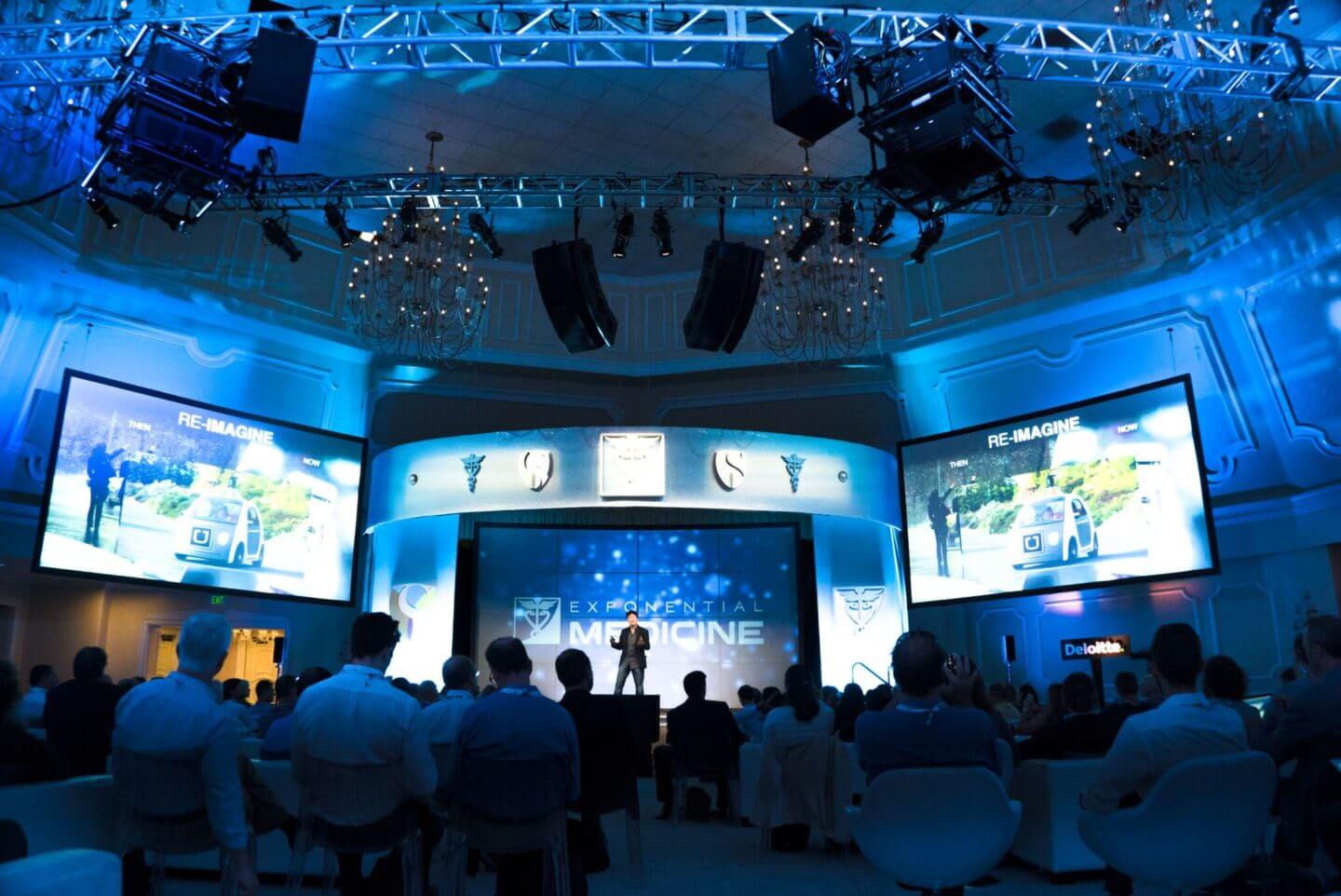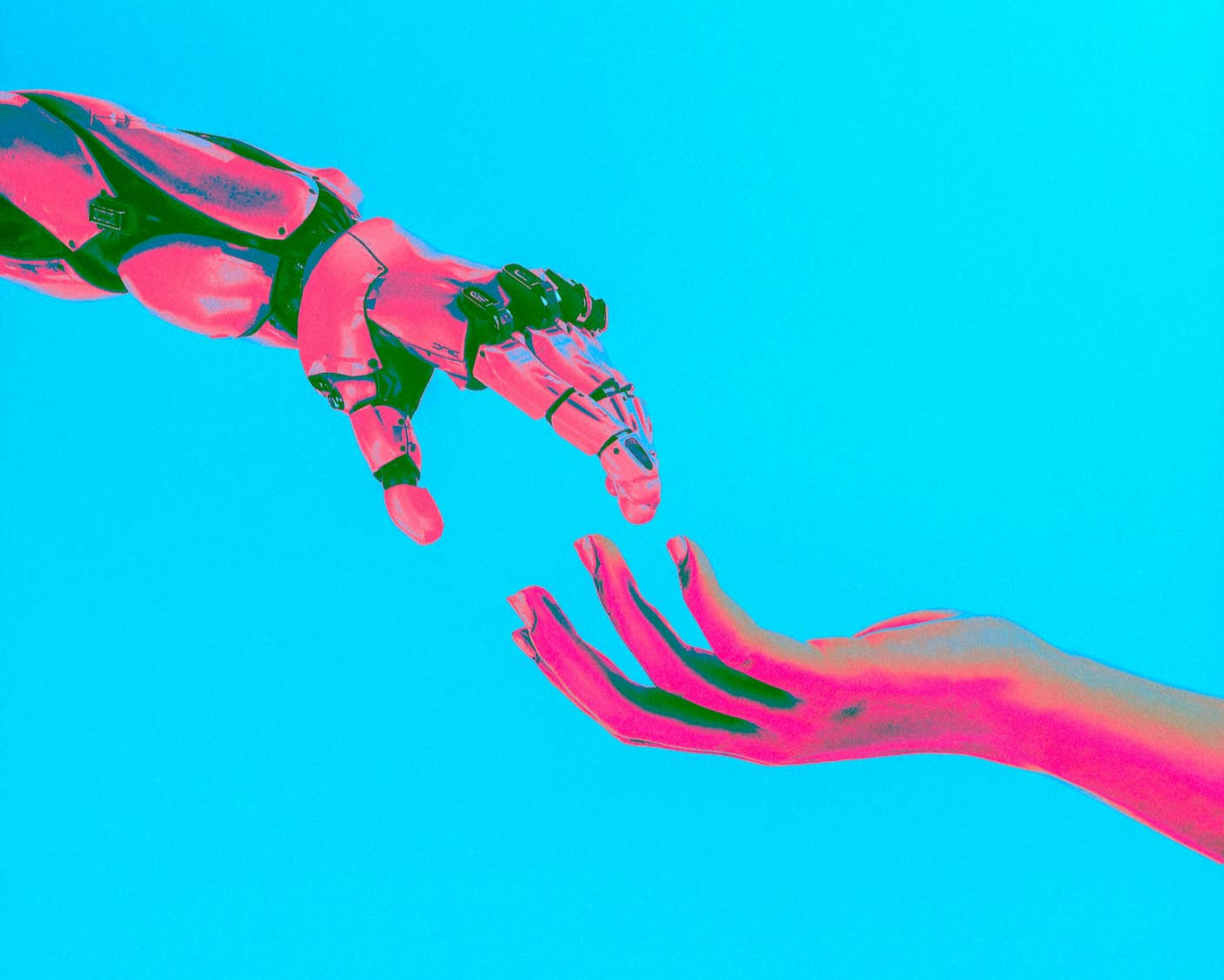“It’s a Powerful Time to Reshape Healthcare Across the Planet”

Share
We are living in a world that is global and exponential. Technology is taking things that used to be scarce and making them abundant—and these forces are reshaping the fields of medicine and healthcare in completely novel ways.
Opening this year’s Exponential Medicine conference in San Diego, Daniel Kraft, the curator of the conference, and faculty chair of Medicine and Neuroscience at Singularity University, took the audience on a whirlwind tour of the latest developments in healthcare and medicine.
“Technology is moving faster and faster,” Kraft said. “The challenge is finding how to put it to use across the whole healthcare space…We can now start connecting the dots and making a difference.”

Daniel Kraft
Connecting the dots is what Exponential Medicine is all about. The annual conference brings together participants from across the medicine and healthcare space to learn about the convergence of accelerating technologies such as big data, wearables, sensors, artificial intelligence, deep learning, and cloud computing—and then seek ways to infuse these technologies as game-changing (and lifesaving) tools in their fields.
Kraft described how we are now seeing innovations in healthcare that used to only exist in science fiction plots—like when Dr. Beverly Crusher in Star Trek would find a brain tumor before it was too late. The real life version has doctors 3D printing visuals of tumors to better understand the tumor. This is the future of medicine and it’s happening today.
Kraft touched on these key developments and trends that will guide the conversation at Exponential Medicine over the next few days:
- We can change our mindset from “sickcare” to “healthcare” by shifting from a reactive era of medicine to an era of medicine that is proactive, preventative, and continuous care.
- We’re going to see a return of the house call, where on demand and in-home care is increasingly available. More services will come online to make this possible like Iodine.com, which offers a “Yelp for drugs.”
- Advances in artificial intelligence are allowing for both patients and healthcare providers to finally move beyond “big data information overload,” and into receiving synthesized and intelligent diagnoses paired with proactive treatment plans.
Be Part of the Future
Sign up to receive top stories about groundbreaking technologies and visionary thinkers from SingularityHub.



- Medicine is moving from ‘quantified self’ to quantified health and wellness and everything is becoming smart and connected. Digital coaching apps like Lark and virtual nurses like Sensely are giving us a taste of how technology can support positive behavior change.
- The connected home wired for wellness is becoming possible with devices like Amazon’s Echo. Imagine one day asking Echo, “What’s my blood pressure and what’s the fat level in the pizza I just ordered?”
- Augmented reality (AR) and virtual reality (VR) are being tested in the operating room to give surgeons a closer look at their patients. For example, using AR to overlay MRI images on a patient before an incision is made. On the patient side, AR and VR are helping with pain control in recovering burn victims, and the results are incredible.
- Illumina’s work to make genome sequencing affordable is ushering in a new marketplace for apps that help people better understand their DNA information. Helix is just one example of this.
- New AI systems are reinventing areas of medicine, like dermatology, where a patient can take an image of their skin disorder at home, and an AI can scan, read, and diagnose the condition.
Kraft ended with a call to action to the audience, “It’s a powerful time to reshape healthcare across the planet.” So the question becomes, “How can you take a new technology and pioneer it in healthcare?”
Are you working in the healthcare space? If so, what moonshot can you take on to create an abundant future of healthcare? Leave a comment and share your moonshot with us.
Want to keep up with coverage from Exponential Medicine? Get the latest insights here.
Image source: Shutterstock
Alison tells the stories of purpose-driven leaders and is fascinated by various intersections of technology and society. When not keeping a finger on the pulse of all things Singularity University, you'll likely find Alison in the woods sipping coffee and reading philosophy (new book recommendations are welcome).
Related Articles

Hugging Face Says AI Models With Reasoning Use 30x More Energy on Average

Study: AI Chatbots Choose Friends Just Like Humans Do

AI Companies Are Betting Billions on AI Scaling Laws. Will Their Wager Pay Off?
What we’re reading